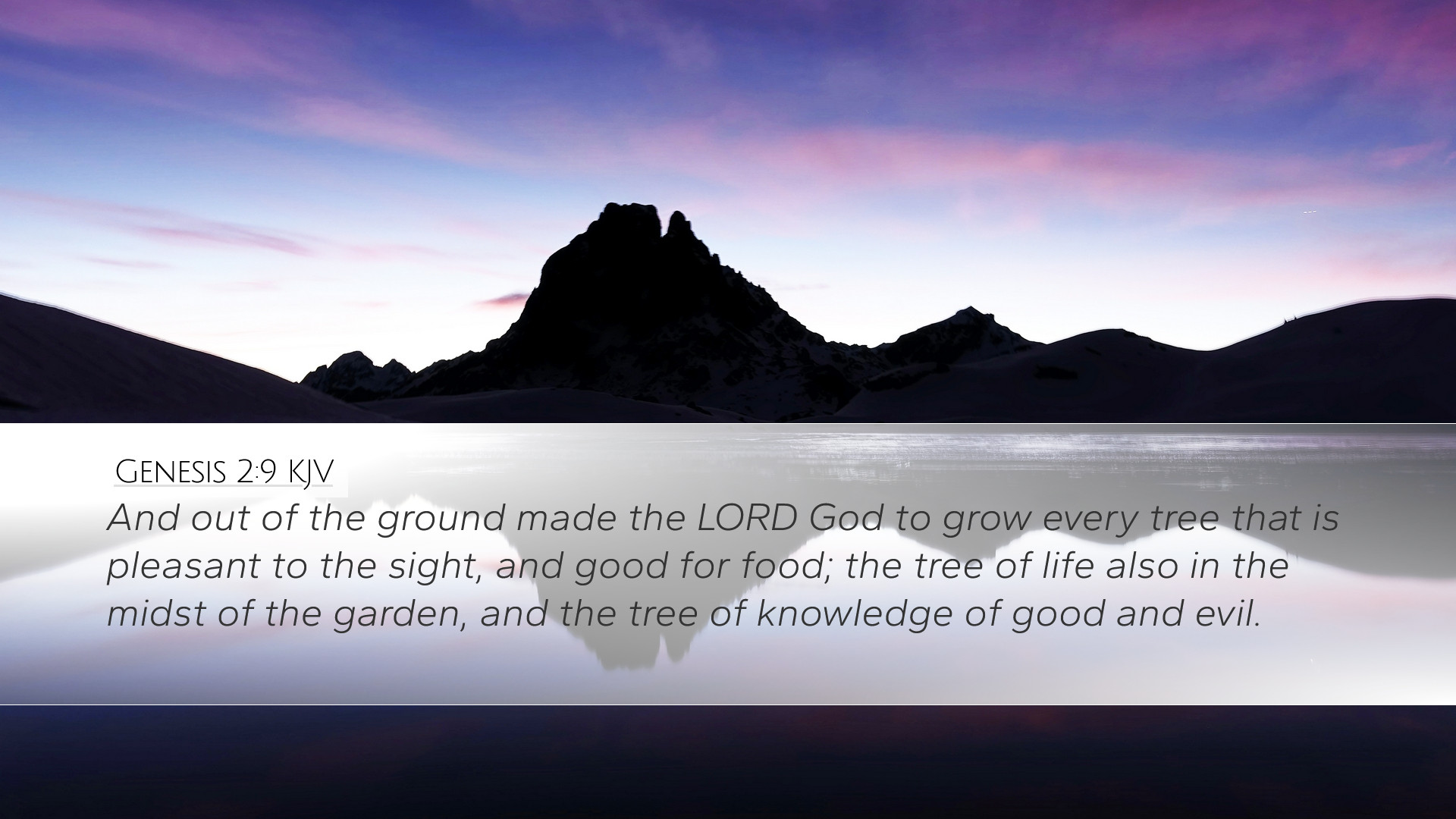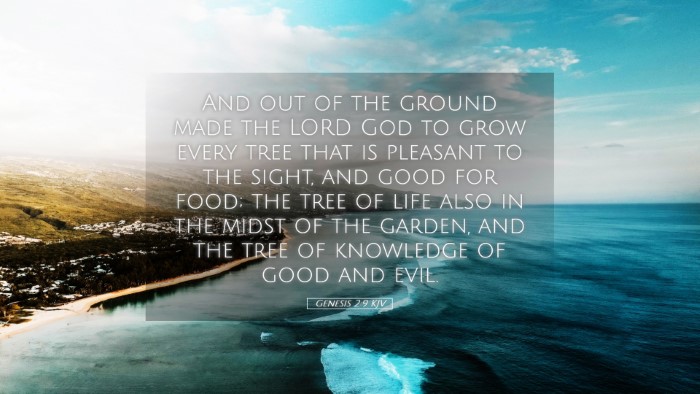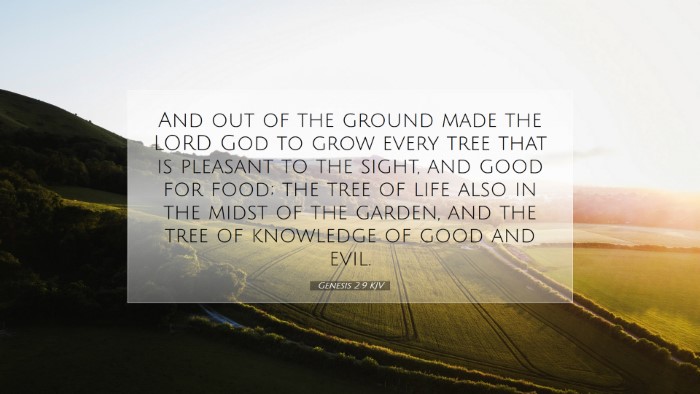Commentary on Genesis 2:9
Genesis 2:9 states: "And out of the ground made the Lord God to grow every tree that is pleasant to the sight, and good for food; the tree of life also in the midst of the garden, and the tree of knowledge of good and evil."
Introduction
This verse presents profound theological and philosophical insights about creation, the nature of God, and humanity's relationship with the divine. The landscape of Eden serves not only as a literal garden but also a symbolic representation of the divine connection between God and humankind.
Analysis of Key Elements
- Divine Creation: The verse highlights God's active role in creation, emphasizing that it is 'the Lord God' who caused the trees to grow. This signifies God’s omnipotence and thoughtful intention in crafting a paradise for humanity.
- Pleasant Appearance and Nutrition: The description of the trees as 'pleasant to the sight' and 'good for food' indicates that God’s provision for humanity is both aesthetic and functional. This duality suggests that God's blessings are not only utilitarian but also enriching to the sense of beauty and joy.
- Symbolism of Trees: The passage identifies two significant trees—the tree of life and the tree of knowledge of good and evil. These trees are integral to the understanding of moral choice, life, and the consequences of disobedience.
The Tree of Life
The tree of life symbolizes eternal life and the sustaining presence of God. According to Matthew Henry, this tree represents ongoing fellowship with God and the divine sustenance that comes from a relationship with the Creator. It signifies the original intent for humanity to live in an unbroken connection with God, experiencing His fullness and glory.
The Tree of Knowledge of Good and Evil
This tree stands as a symbol of moral discernment and the human capacity for choice. Albert Barnes elaborates on the significance of this tree by highlighting that the command not to eat from it establishes the moral framework for humanity’s relationship with God. The tree invites questions about autonomy, freedom, and the responsibility that comes with moral choices. The act of choosing to disobey God introduces the concept of sin and its ramifications on human existence.
Theological Implications
- Free Will: Genesis 2:9 introduces the critical element of free will within humanity. God does not create automatons but enables human beings to make choices, reflecting His image. This free will is essential for genuine love and relationship with God.
- Moral Responsibility: The presence of the tree of knowledge of good and evil defines moral responsibility. Humans are tasked with making ethical decisions, which leads to an exploration of moral theology throughout the biblical narrative.
- God's Goodness: Both trees reflect the goodness of God’s creation, as per Adam Clarke's commentary. The diversity and abundance of options in Eden demonstrate a benevolent Creator who desires to bless humanity abundantly.
- Consequences of Disobedience: The existence of the trees sets the stage for the narrative of the Fall in Genesis 3, wherein disobedience leads to a rupture in the relationship between God and humanity. This structure forms the basis for understanding sin, redemption, and the need for reconciliation with God.
Conclusion
Genesis 2:9 is a rich verse that serves as a foundation for numerous theological discussions. It draws attention to God’s role as Creator and sustainer, the nature of humanity's moral choices, and the implications of those choices for the relationship between God and humanity. Each tree symbolizes fundamental aspects of human existence—life, choice, beauty, and obedience. By contemplating this verse, scholars, pastors, and students alike can deepen their understanding of God's nature, the purpose of humanity, and the profound consequences of free will in the pursuit of a relationship with the Creator.


